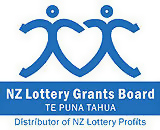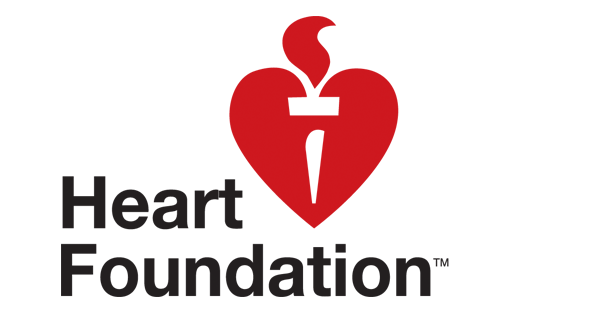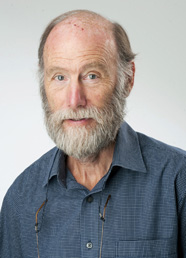Background
The New Zealand Very Low Birth Weight (VLBW) Study has been looking at health and developmental outcomes from birth to young adulthood for New Zealanders born in 1986 who were born very early (premature) and with very low birthweight (less than 1500 grams).
From the 1980s, changes in medical technology and intensive care practices have resulted in dramatic improvements in the survival of children born very early or very small. However, there have been ongoing concerns that premature infants might have increased risks of health problems in childhood and higher rates of disability and developmental problems than other children. With the generous support of our study participants and funders, the NZ VLBW study has explored many of these issues.
Around the world there is now considerable interest in the longer term health outcomes for people born prematurely, as excellent survival rates now means substantial numbers of premature and low birthweight infants born in the 1980s are reaching adulthood. This is the current research focus of the NZ VLBW study, which has looked at range of outcomes in the VLBW group compared to a control group who were born in NZ in 1986 at full term and were healthy at birth.
Recent Study Findings
At 26–30 years, 229 of the 323 VLBW participants who survived to adulthood came to Christchurch for a comprehensive assessment over two days covering physical and mental health and cognitive, neuropsychological and social functioning. 100 controls were assessed in Christchurch in the same way as VLBW participants.
With any testing of the general population, we know we will see a wide range of outcomes. The difference seen in height is a good example. In this study, we have been looking for any trends that are different between the group born with very low birthweight and the group born after a full term pregnancy (the control group). Using height as an example, we found that the VLBW group were on average a few centimetres shorter than the control group. However, most participants in both groups still had a height within the normal range for the general population. Similarly, for blood pressure, the VLBW group on average had slightly higher blood pressure than the control group, although this was still in the normal range.
As we show below, there were similar trends for many other results:
- Lung function – Although most of the adults born VLBW had lung function within the normal range approximately one third had evidence of some impairment of lung function with those who had severe lung disease in infancy more likely to be affected
- Heart size and function – Using heart ultrasound we have found adults born with VLBW have slightly higher blood pressure, smaller hearts and small differences in cardiac and vascular function
- Brain – Assessment of brain structure by magnetic resonance imaging showed a range of subtle structural differences between the brains of those born VLBW compared to controls. Differences in brain function are currently being analysed
- Dental health – Adults born VLBW were more likely to experience periodontal attachment loss (gum recession) but there was no difference in dental caries or gingivitis
- Vision – Adults born VLBW who had a history of retinopathy of prematurity, as babies are more likely to have ongoing visual difficulties affecting their daily living
- Physiological aging – Utilising ten biomarkers associated with physiological aging we demonstrated that adults born VLBW had a somewhat poorer overall physiological profile than their healthy normal birthweight peers
Future Directions
We are currently planning the next exciting phase of this very valuable longitudinal study. We hope to reconnect with our participants at age 35 years to invite them to participate in a survey of health and reproductive history. There will be a particular emphasis on risk factors for cardiovascular disease as there is emerging evidence that being born prematurely or very low birth weight may increase the risk of cardiovascular disease in adulthood. We will also invite the mothers of NZ VLBW study subjects to participate in a mother's study of cardiovascular risk, as there is emerging evidence that giving birth to a baby prematurely also increases maternal risk of later cardiovascular disease. Funding permitting, at age 40 years we hope to be able to see everyone in Christchurch again to undertake some more assessments
Publications
Darlow BA, Harris SL, Horwood LJ. Little evidence for long-term harm from antenatal corticosteroids in a population-based very low birthweight young adult cohort. Paediatric and Perinatal Epidemiology, 2022. doi:10.1111/ppe.12886.
Kim HM, Horwood LJ, Harris SL, Bora S, Darlow BA, Woodward LJ. Self-reported executive function problems in adults born very low birthweight. Paediatric and Perinatal Epidemiology, 2022. doi:10.1111/ppe.12891.
Robinson R, Girchenko P, Pulakka A, Heinonen K, Lähdepuro A, Lahti-Pulkkinen M, Darlow BA, Horwood LJ, Räikkönen K. ADHD symptoms and diagnosis in adult preterms: Systematic review, IPD meta-analysis, and register-linkage study. Pediatric Research, 2022. doi:10.1038/s41390-021-01929-1.
Eves R, Mendonça M, Baumann N, Ni Y, Darlow BA, Horwood J, Wolke D. Association of very preterm birth or very low birth weight with intelligence in adulthood: An individual participant data meta-analysis. JAMA Pediatrics, 2021; 175(8), e211058. doi: 10.1001/jamapediatrics.2021.1058.
Woodward LJ, Horwood LJ, Darlow BA, Bora S. Visuospatial working memory of children and adults born very preterm and/or very low birth weight. Pediatric Research, 2021. doi:10.1038/s41390-021-01869-w.
Greer C, Troughton RW, Adamson PD, Harris SL. Preterm birth and cardiac function in adulthood. Heart, 2021. doi:10.1136/heartjnl-2020-318241.
Greer C, Harris SL, Troughton R, Adamson PD, Horwood J, Frampton C, Darlow BA. Right ventricular structure and function in young adults born preterm at very low birth weight. Journal of Clinical Medicine, 2021; 10(21), 4864. doi:10.3390/jcm10214864.
Yang J, Epton MJ, Harris SL, Horwood J, Kingsford RA, Troughton R, Greer C, Darlow BA. Reduced exercise capacity in adults born very low birth weight: A population-based cohort study. American Journal of Respiratory and Critical Care Medicine, 2021. doi:10.1164/rccm.202103-0755OC
McKelvey, V, Darlow, BA, Horwood, LJ, Martin, J. Dental status of young adults born with very low birthweight: A national cohort study. Community Dentistry and Oral Epidemiology, 2021; 49(3), 240-248 doi: 10.1111/cdoe.12595
Kajantie E, Johnson S, Heinonen K, Anderson PJ, Wolke D, Evensen KAI, Räikkönen K, Darlow BA, van der Pal S, Indredavik MS, Jaekel J, Hovi P, Morrison K, Verrips E, Doyle LW, APIC Adults Born Preterm International Collaboration. Common core assessments in follow-up studies of adults born preterm – Recommendation of the Adults Born Preterm International Collaboration. Pediatric and Perinatal Epidemiology, 2021; 35(3), 371-387. doi: 10.1111/ppe.12694
Darlow BA, Woodward LJ, Levin KJ, Melzer T, Horwood LJ. Perinatal and childhood predictors of general cognitive outcome at 28 years in a very-low-birthweight national cohort. Developmental Medicine & Child Neurology, 2020; 62(12): 1423-1428. doi: 10.1111/dmcn.14649
Darlow BA, Horwood J, Dhakal B, Harris SL, McKelvey VA, Elliott JM, Yang J, Mackay RJ. Biomarkers of ageing in New Zealand VLBW young adults and controls. Pediatric Research, 2020. doi: 10.1038/s41390-020-0882-x
Yang J, Kingsford RA, Horwood J, Epton MJ, Swanney MP, Stanton J, Darlow BA. Lung Function of Adults Born at Very Low Birth Weight. Pediatrics, 2020; 145(2): e20192359. doi: 10.1542/peds.2019-2359
Harris SL, Bray H, Troughton R, Elliott J, Frampton C, Horwood J, Darlow BA. Cardiovascular Outcomes in Young Adulthood in a Population-Based Very Low Birth Weight Cohort. The Journal of Pediatrics, 2020. doi: 10.1016/j.peds.2020.06.023
Darlow BA, Martin J, Horwood LJ. Metabolic syndrome in very low birth weight young adults and controls: the NZ 1986 VLBW study. Journal of Pediatrics, 2019; 206: 128-133.e5. doi: 10.1016/j.jpeds.2018.10.060.
Darlow BA, Martin J, Horwood LJ. Unrecognised and unmet physical health problems in a national cohort of very low birthweight (VLBW) young adults and controls. J Primary Health Care, 2019; 11: 32-8. doi: 10.1071/HC18044
Pascoe MJ, Melzer TR, Horwood LJ, Woodward LJ, Darlow BA. Altered grey matter volume, perfusion and white matter integrity in very low birthweight adults. NeuroImage: Clinical, 2019; 22 :101780. doi: 10.1016/j.nicl.2019.101780
Darlow BA, Elder M, Kimber B, Martin J, Horwood LJ. Vision in former very low birthweight young adults with and without retinopathy of prematurity compared with term born controls: The NZ 1986 VLBW Follow-up Study. British Journal of Ophthalmology, 2018; 102: 1041-6. doi: 10.1136/bjophthalmol-2017-311345
Prickett TCR, Darlow BA, Troughton RW, Cameron VA, Elliott JM, Martin J, Horwood LJ, Espiner EA. New insights into cardiac and vascular natriuretic peptides: Findings from young adults born with very low birth weight. Clinical Chemistry, 2018; 64(2): 363–373. doi: 10.1373/clinchem.2017.280354
Darlow BA, Horwood LJ, Woodward LJ, Elliott JM, Troughton RW, Elder M, Epton M, Stanton J, Swanney M, Keenan R, Melzer T, McKelvey V, Levin K, Meeks MG, Espiner EA, Cameron VA, Martin J. The New Zealand 1986 very low birth weight cohort as young adults: mapping the road ahead. Study protocol. BMC Pediatrics, 2015; 15: 90. doi: 10.1186/s12887-015-0413-9
Darlow BA, Horwood LJ, Pere-Bracken H, Woodward LJ. Psychosocial outcomes of young adults born very low birth weight. Pediatrics, 2013; 132: e1521-1528. doi: 10.1542/peds.2013-2024
Please email us if you require a copy of the above papers: brian.darlow@otago.ac.nz
Further information, please contact
Bridget Kinnersley (Research Administrator)
Department of Psychological Medicine, University of Otago, Christchurch
PO Box 4345, Christchurch 8140, New Zealand
Tel +64 3 372 6706
Email bridget.kinnersley@otago.ac.nz
Physical Address:
Level 3, Terrace House, 4 Oxford Terrace, Christchurch, New Zealand
or
Dr Sarah Harris
Department of Paediatrics, University of Otago, Christchurch
PO Box 4345, Christchurch 8140, New Zealand
Tel +64 3 372 6718
Email sarah.harris@otago.ac.nz







